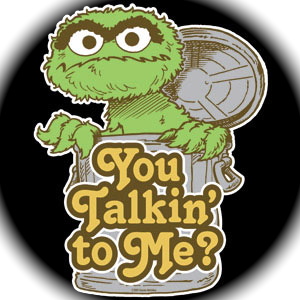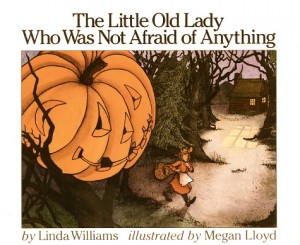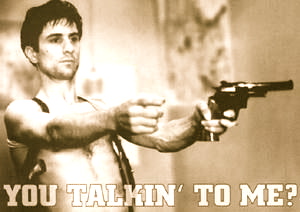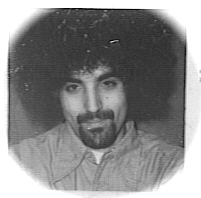 There’s an article in today’s New York Times that deserves our attention and contemplation. It’s titled “In ‘Sweetie’ and ‘Dear,’ a Hurt for the Elderly” (October 7, 2008). Reporter John Leland targets elderspeak — “the sweetly belittling form of address that has always rankled older people” — and, in particular, people “who address any elderly person as ‘dear’.”
There’s an article in today’s New York Times that deserves our attention and contemplation. It’s titled “In ‘Sweetie’ and ‘Dear,’ a Hurt for the Elderly” (October 7, 2008). Reporter John Leland targets elderspeak — “the sweetly belittling form of address that has always rankled older people” — and, in particular, people “who address any elderly person as ‘dear’.”
The article points out that many older persons very much resent being called “Sweetie” or “Dearie,” even when the speaker is trying to be nice or to sound caring. With their implication that the elderly are somehow less than competent or capable, such terms of endearment (especially from strangers or service providers) are condescending. Worse, according to the Times:
“Now studies are finding that the insults can have health consequences, especially if people mutely accept the attitudes behind them, said Becca Levy, an associate professor of epidemiology and psychology at Yale University, who studies the health effects of such messages on elderly people.
 “Those little insults can lead to more negative images of aging,” Dr. Levy said. “And those who have more negative images of aging have worse functional health over time, including lower rates of survival.”
“Those little insults can lead to more negative images of aging,” Dr. Levy said. “And those who have more negative images of aging have worse functional health over time, including lower rates of survival.”
“Despite such research, the worst offenders are often health care workers . . . “
The point is very well taken and should be kept in mind when talking with older persons. Of course, I hope lawyers aren’t guilty of using elderspeak when practicing Elderlaw.
 This article is a good opportunity to ask even our close relatives and friends whether they would prefer that we drop the Dears and Sweeties. Surprisingly, our congenitally cranky Prof. Yabut agrees with the sentiment voiced in the NYT article by Oregonian Jan Rowell:
This article is a good opportunity to ask even our close relatives and friends whether they would prefer that we drop the Dears and Sweeties. Surprisingly, our congenitally cranky Prof. Yabut agrees with the sentiment voiced in the NYT article by Oregonian Jan Rowell:
“Not all older people object to being called sweetie or dear, and some, like Jan Rowell, 61, of West Linn, Ore., say they appreciate the underlying warmth. ‘We’re all reaching across the chasm,’ Ms. Rowell said. ‘If someone calls us sweetie or honey, it’s not diminishing us; it’s just their way to connect, in a positive way.’
“She added, ‘What would reinforce negative stereotypes is the idea that old people are filled with pet peeves, taking offense at innocent attempts to be friendly’.”
senior discount day
an eighty year old man
packs my groceries
…. by ed markowski
.. Psst: Boomers don’t like it either ..  ..
..
A couple of recent incidents from my own life made me very aware — at age 58 — that terms of address can come with irksome aging implications. Last Spring, a 20-something stranger in my neighborhood park twice called me “Pops.” It did not sound like a term of respect or endearment. It was at least a decade premature and ran contrary to the youthful self-image that resides in my psyche. Worse, the thought arose “it’s not going to get any better.”
the um in her voice
before offering me
the senior discount
….. by Carolyn Hall – A New Resonance 2; Frogpond XXIII:2
Similarly, a couple weeks ago, in two separate incidents on the same morning, two young women I had never met called me “Dear” and deferred to me as I was entering a building — first at a supermarket, then at my doctor’s office. Frankly, rightly or wrongly, my male ego felt diminished: they weren’t just saying I was a lot older than them, they were implying I was over the hill, non-threatening, genderless.
Discovery channel –
an older male vanquished
heads for the hills
… by Tom Clausen – Upstate Dim Sum (2003/II)
..  (1971) .. in my mind I’m still 19 ..
(1971) .. in my mind I’m still 19 ..  (2008) ..
(2008) ..
In a related event, last month my lovely friend Sharon, who is 47 and looks 37, opined that many men well over forty “go around thinking they’re still 19.” I confessed to her that I had in fact recently said to myself, “When I walk around, I feel just like I did at 19 — at least until my knee hurts or I catch my reflection in a window.” To be honest, having been through quite a few ordeals the past few decades, it’s great that my spirit — unless reminded otherwise — still feels like it did when I was in college. It would, of course, be wonderful not to be reminded otherwise any more often than absolutely necessary, when I deal with younger folk.
Nonetheless, I hope I’ll keep in mind the words of Warren Cassell, of Portland, Ore., in today’s NYT article:
“I’m irked by it, but I can’t think about it that much. There are too many more important things to think about.”
![]() Well, this “quickie” post sure got long. I’ll say “so long” with a few more one-breath poems from my friends.
Well, this “quickie” post sure got long. I’ll say “so long” with a few more one-breath poems from my friends.
the aging gourd
and I
cast our shadows
. . . . . . . . . . by Kobayashi Issa (David G. Lanoue, translator)
Valentine kisses –
trying it with and without
dentures
. . . . by dagosan
mother’s day
a nurse unties
the restraints
.. by Roberta Beary – The Unworn Necklace: Haiku and Senryu (Snapshot Press 2007)
warming up
over a cup of tea
my mother-in-law
……… by Tom Painting – Frogpond XXXI:1 (Winter 2008) 
calling home–
the color of mother’s voice
before her words
………………… by Hilary Tann, in “dust of summers: RMA 2007”; orig. pub. The Heron’s Nest IX:4
visiting mother—
again she finds
my first grey hair
. . . . by Michael Dylan Welch – TAO
in the attic
grandpa searches
for his marbles
… by w.f. own – Haiku Notebook (2007)
clouded moon
an old man
ebbs away
.. by Matt Morden – Morden Haiku (January 31, 2007)